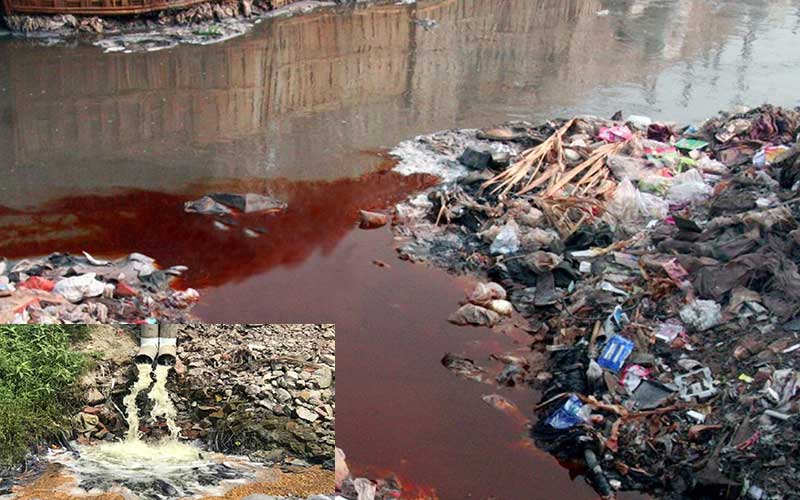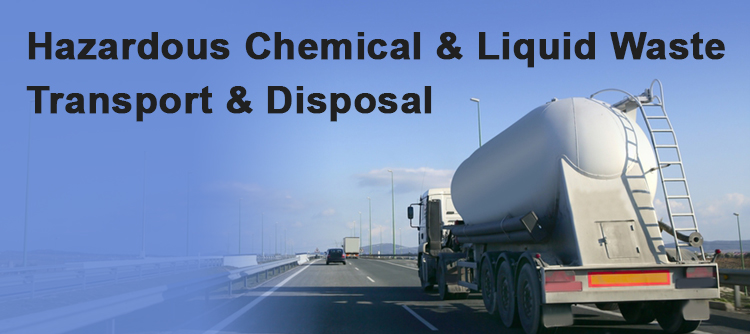Specialist Liquid Waste Removal Melbourne: Keeping Your Environment Tidy
Specialist Liquid Waste Removal Melbourne: Keeping Your Environment Tidy
Blog Article
Comprehending the Comprehensive Refine of Fluid Waste Disposal: Best Practices and Environmental Influence Considerations
The administration of fluid garbage disposal is a diverse concern that calls for an extensive understanding of different best practices and their linked ecological effects. From the sorts of fluid waste created to the techniques utilized for collection, treatment, and last disposal, each step plays a vital role in safeguarding ecosystems and public wellness. As regulative standards evolve and modern technology breakthroughs, the discussion around these procedures becomes increasingly pertinent. What effects do these modifications hold for future sustainability initiatives, and exactly how can stakeholders ensure that they are adequately attended to?
Kinds of Liquid Waste
Recognizing the various sorts of fluid waste is important for reliable management and disposal methods. Fluid waste can be broadly categorized right into numerous kinds, each requiring special handling and therapy approaches.
Industrial liquid waste commonly contains dangerous materials, consisting of hefty steels, solvents, and chemicals, generated during manufacturing processes. These wastes require stringent governing conformity to protect human health and the atmosphere. Residential fluid waste primarily refers to wastewater generated from families, consisting of sewer and greywater, which, although less toxic, can still position considerable dangers if incorrectly handled.
Agricultural fluid waste, consisting of overflow from ranches, commonly has plant foods and chemicals that can bring about ecological destruction otherwise dealt with effectively. Clinical fluid waste, produced from health care facilities, consists of polluted fluids such as physical fluids and chemicals, requiring specialized disposal approaches to avoid infection and environmental contamination.
Lastly, oil and oil waste, typically produced by dining establishments and auto sectors, can create serious blockages in sewer systems otherwise taken care of appropriately. Comprehending these classifications helps with targeted techniques for treatment, conformity with guidelines, and efficient disposal methods, inevitably advertising environmental sustainability and public health safety and security.

Collection Approaches
Efficient collection methods are crucial for the appropriate monitoring of fluid waste, guaranteeing that it is collected safely and successfully before treatment or disposal. Different techniques are utilized depending on the kind of liquid waste created, the volume, and the details qualities of the waste.
One common method is the use of dedicated collection storage tanks or sumps, which are designed to catch fluid waste at the source. These systems frequently include pumps that assist in the transfer of waste to bigger storage containers or therapy facilities. In addition, mobile collection units equipped with vacuum cleaner innovation are utilized in situations where waste is produced periodically or in hard-to-reach areas.
For industrial setups, closed-loop systems can effectively lessen leaks and spills, permitting the healing and reuse of fluid waste. It is also necessary to educate personnel on appropriate collection methods to mitigate dangers connected with hazardous compounds.
In addition, executing normal maintenance routines for collection tools ensures optimal efficiency and safety and security. The integration of sophisticated tracking systems can improve collection effectiveness by providing real-time data on waste degrees and possible threats. Overall, effective collection methods are foundational to sustainable liquid waste management practices.
Treatment Processes
Treatment processes play an important role in the my explanation management of liquid waste, transforming potentially hazardous materials into reusable resources or safe effluents - liquid waste disposal. These processes can be broadly categorized right into physical, chemical, and organic methods, each customized to resolve specific contaminants existing in the waste stream
Physical therapy techniques, such as sedimentation and filtering, work by removing put on hold solids and particle matter. These techniques are typically the primary step in the therapy chain, efficiently decreasing the tons on succeeding procedures. Chemical treatments involve the usage of reagents to counteract dangerous compounds, precipitate heavy steels, or oxidize organic pollutants, therefore boosting the security of the effluent.
Biological treatment procedures, consisting of activated sludge systems and anaerobic food digestion, take advantage of the natural capacities of bacteria to break down raw material. These techniques this article are particularly efficient for wastewater containing naturally degradable pollutants. Advanced treatment modern technologies, such as membrane filtering and progressed oxidation procedures, are increasingly utilized to attain higher levels of filtration.
Incorporating a combination of these therapy methods not only makes sure conformity with regulatory requirements yet also promotes environmental sustainability by recouping valuable sources from liquid waste.
Disposal Options
How can companies guarantee the secure and liable disposal of liquid waste? Reliable disposal alternatives are important for securing public wellness and the setting. The primary methods include land disposal, therapy, and incineration complied with by discharge right into metropolitan wastewater systems.
Land disposal entails the mindful control of liquid waste in designated garbage dumps, making certain that it does not seep right into bordering dirt or water. Incineration, on the other hand, topics liquid waste to high temperatures, converting it into ash and gases, which require proper filtration to minimize emissions. This method is appropriate for contaminateds materials that can not be treated through traditional means.
In instances where fluid waste can be treated, organizations may select chemical or organic therapy processes to neutralize hazardous components prior to releasing the treated effluent into metropolitan systems. This course normally lines up with regulatory requirements, making certain that the effluent fulfills security standards.
Ultimately, companies should conduct detailed assessments of each disposal choice to identify its feasibility, thinking about elements such as waste make-up, regulatory conformity, and potential threats to health and wellness and the environment. By choosing appropriate disposal approaches, companies can add to an accountable waste management method.
Environmental Influence
The ecological influence of fluid waste disposal is a crucial factor to consider for companies looking for to decrease their ecological footprint. Furthermore, the discharge of without treatment or improperly dealt with waste into surface waters can result in eutrophication, leading to oxygen exhaustion and the succeeding death of fish and other organisms.

To mitigate these effects, companies need to embrace finest practices such as executing rigorous waste therapy procedures, promoting recycling and reuse, and adhering to regulatory criteria. By taking an aggressive strategy to fluid waste management, entities can significantly lower their ecological footprint while supporting lasting growth goals. Ultimately, a thorough understanding of the ecological impacts connected with fluid waste disposal is important for informed decision-making and liable stewardship of natural sources.
Final Thought
Effective administration of fluid waste is crucial for securing ecological honesty and public health. Eventually, a comprehensive understanding of liquid waste disposal not just minimizes environmental impacts but likewise promotes a dedication to liable source management and environmental stewardship.
The administration of fluid waste disposal is a complex concern that calls for an extensive understanding of various ideal practices and their associated ecological effects. From the kinds of fluid waste created to the techniques used for collection, therapy, and last disposal, each step plays a vital role in safeguarding environments and public health.The environmental effect of liquid waste disposal is a crucial factor to consider for organizations seeking to lessen their ecological footprint. Ultimately, a thorough understanding of the ecological influences connected with liquid waste disposal is necessary for informed decision-making and responsible stewardship of natural sources.
Eventually, a comprehensive understanding of fluid waste disposal not just minimizes environmental effects but also promotes a commitment to accountable resource management and ecological stewardship.
Report this page